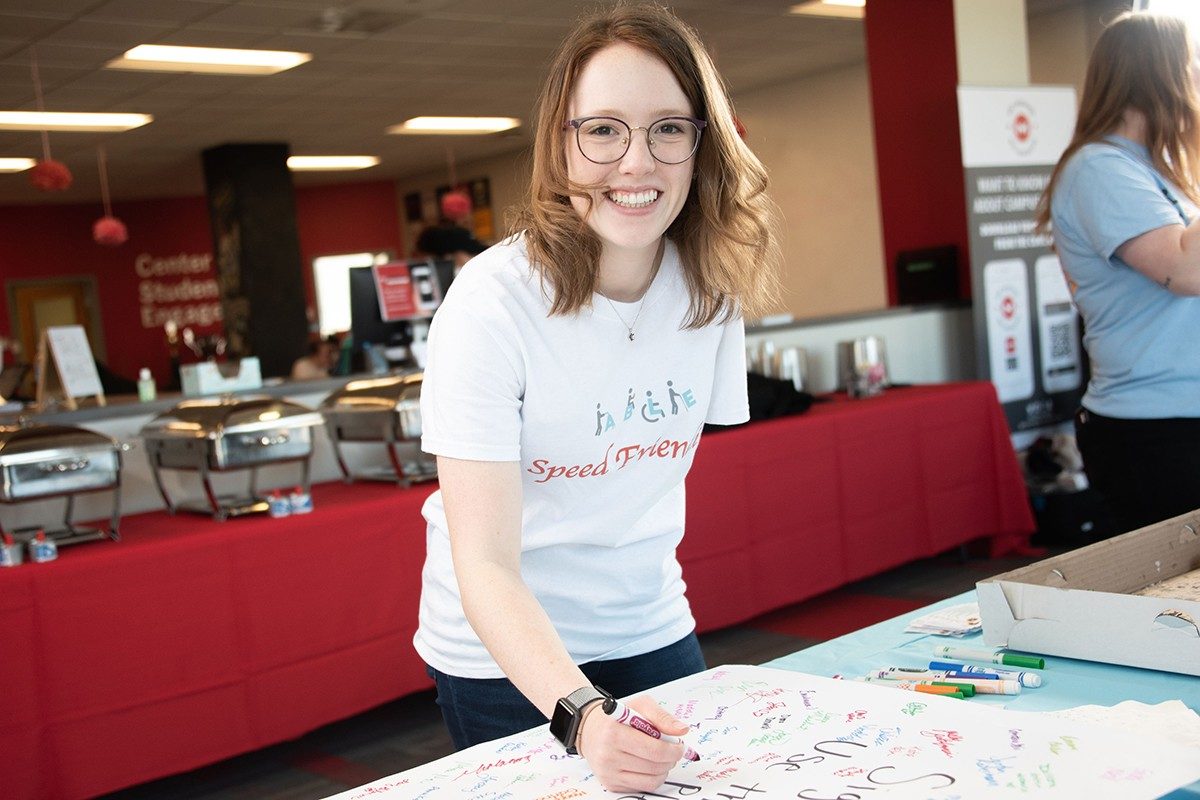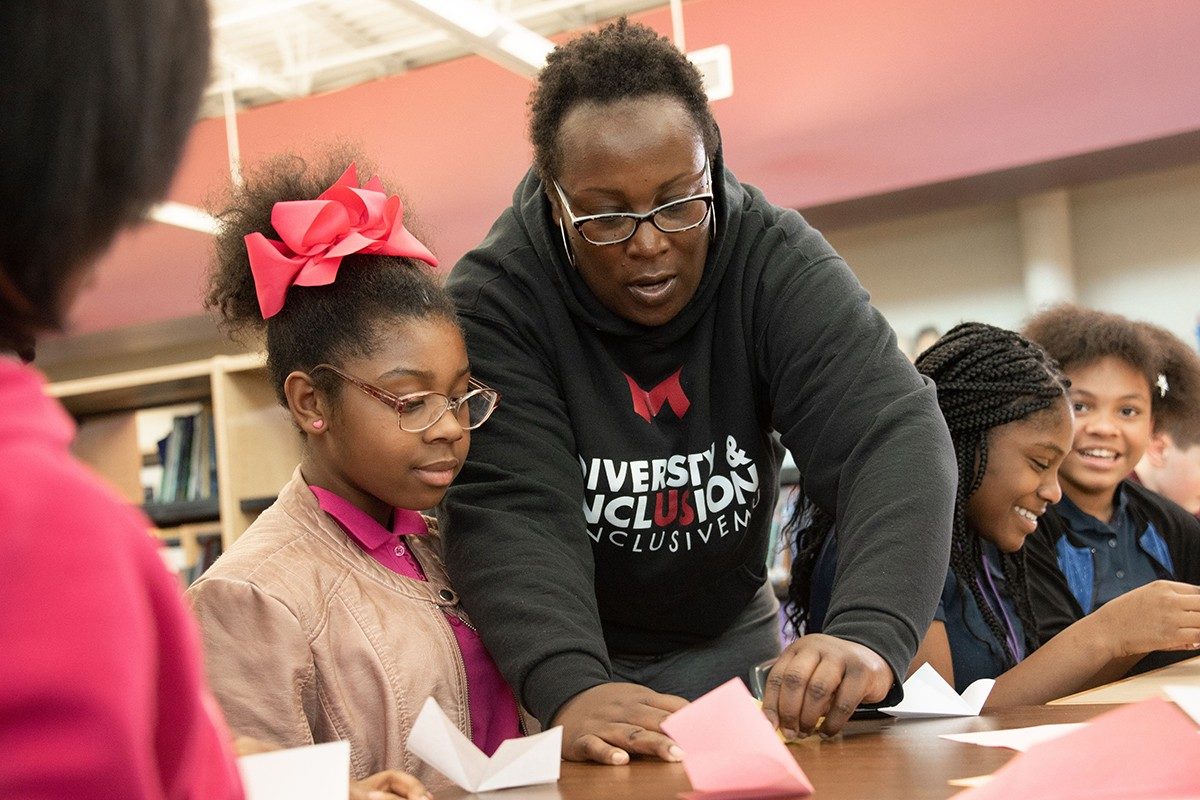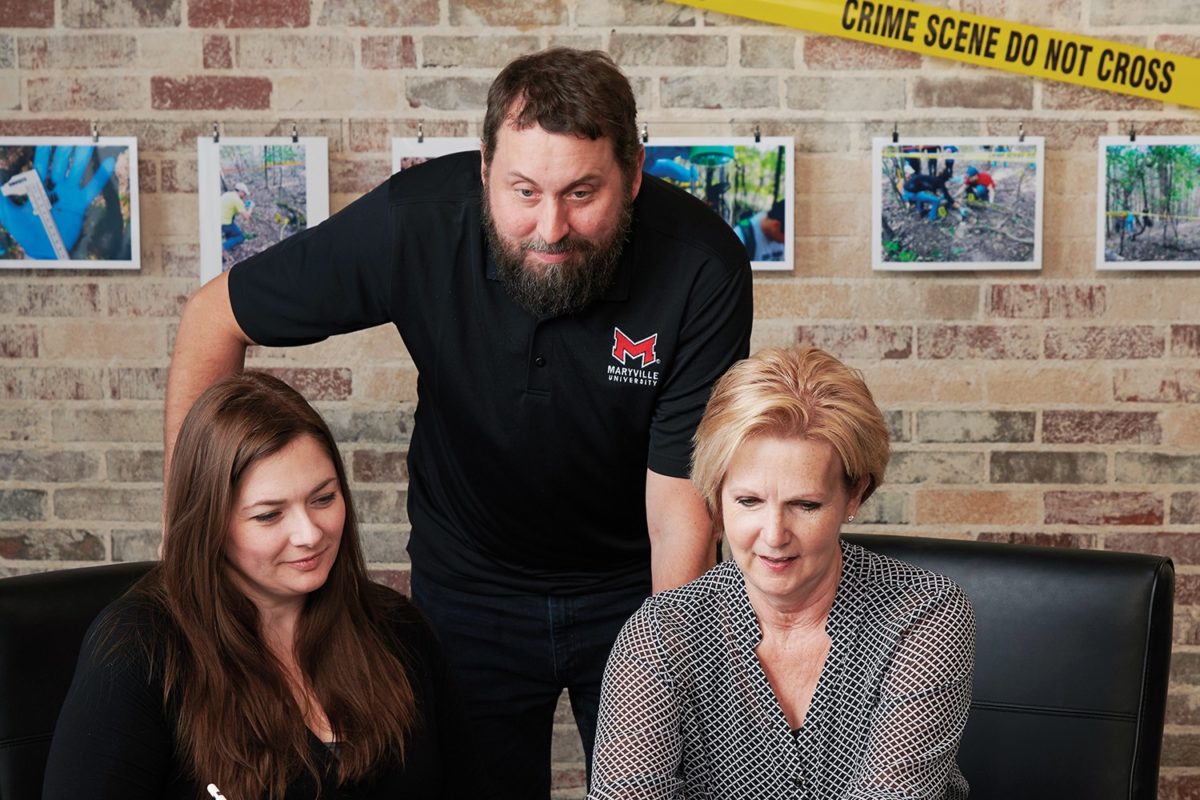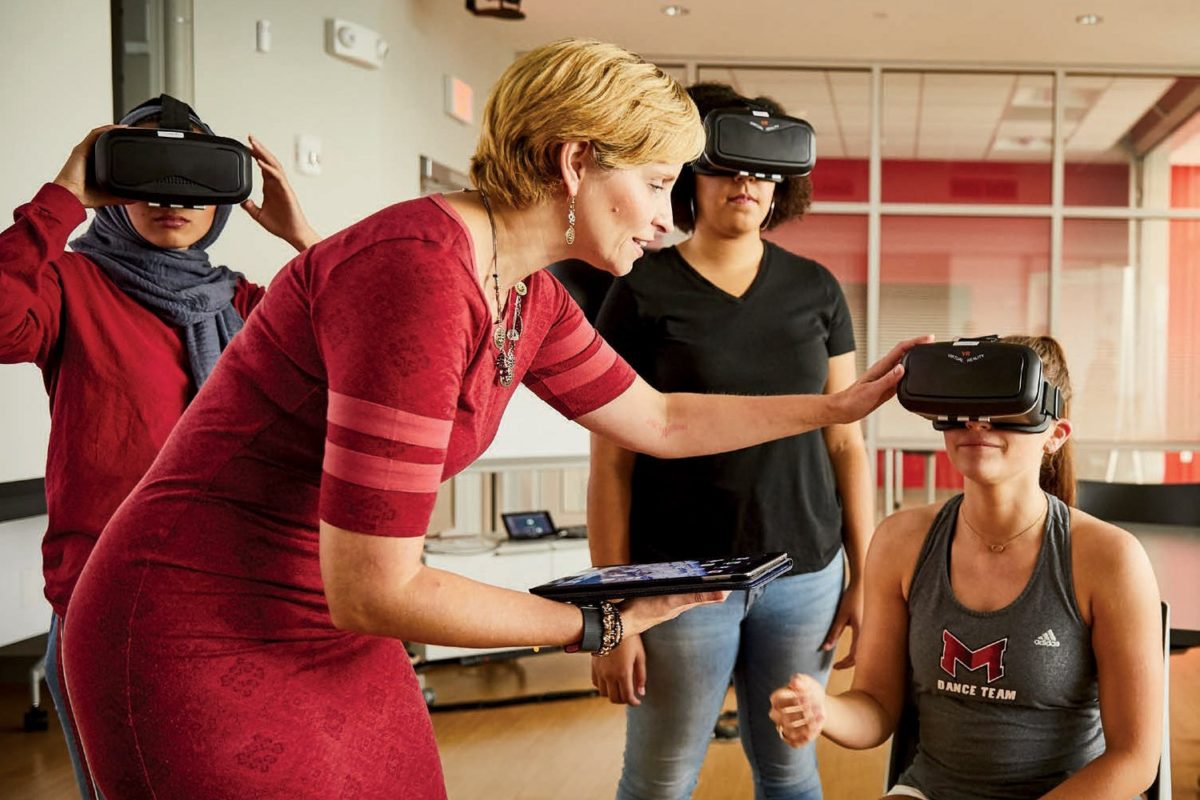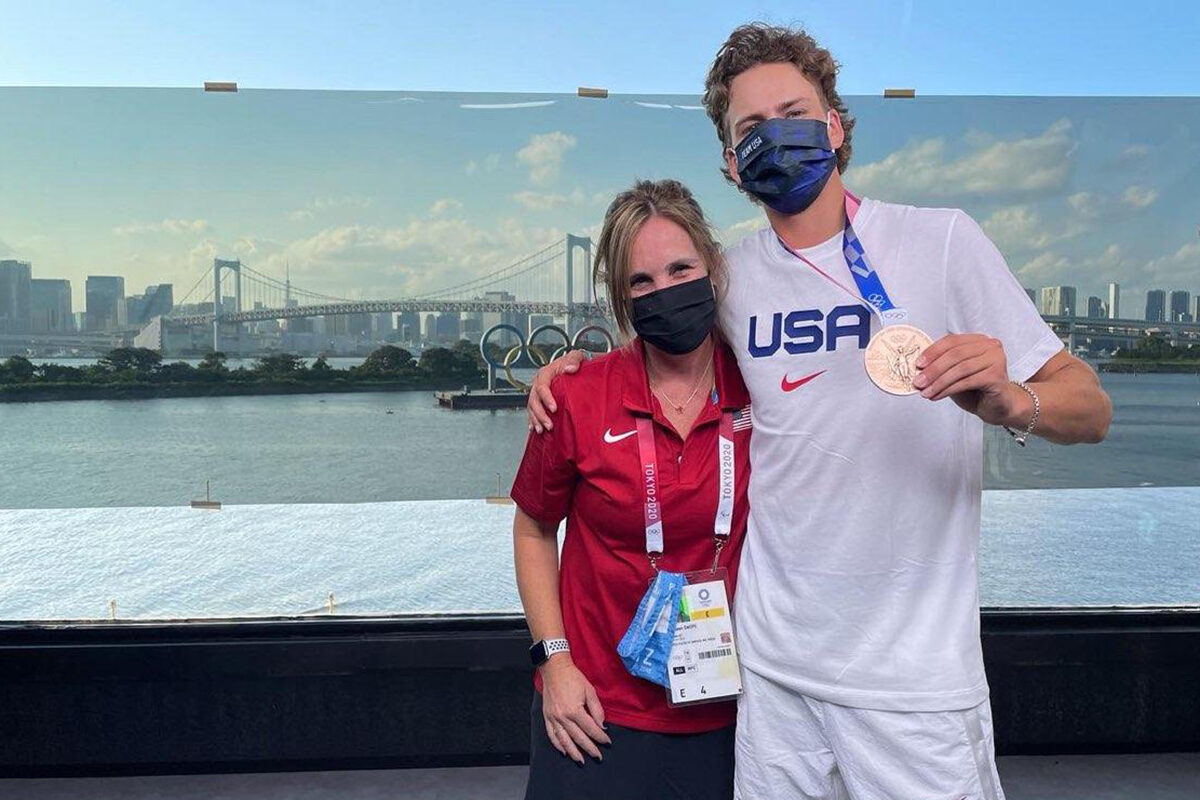Maryville University is helping transform the lives of homeless families in St. Louis by providing crucial occupational therapy services.
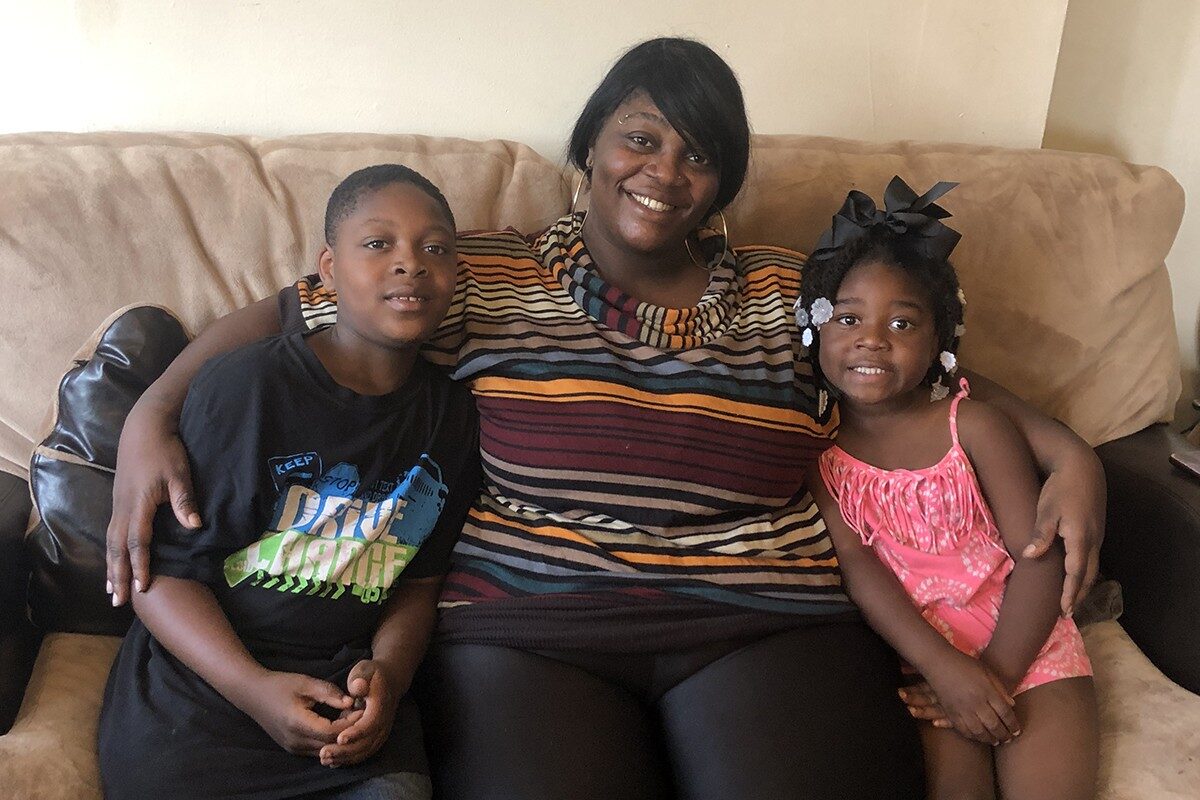
The Hidden Homeless
BY CONSTANCE GIBBS
Homeless families are often invisible. They live in cars, hotels or doubled up with family or friends. More than 1,000 St. Louis families enter emergency shelters each year due to a growing shortage of affordable rental housing and simultaneous increase in poverty. The pandemic has only made the homelessness crisis worse.
Maryville University occupational therapy students are helping stabilize homeless families in crisis through their work with Humanitri. The St. Louis organization provides families with temporary housing, a support network and the resources and skills needed to establish sustainable life change.
Maryville students first began working with Humanitri in the spring of 2020, before the onset of the pandemic. A small group was tasked with creating a program for middle-school-aged children that mirrored Humanitri’s parent program. Named Together Achieving Goals (TAG), the Maryville students created lessons and activities in the areas of household management, financial management and personal responsibility.
One TAG activity taught children about financial management by having them build three coin banks out of cardstock and tape, and then labeling them save, share or spend. The activity helped children understand that they can make choices with their money and the importance of saving for the future.
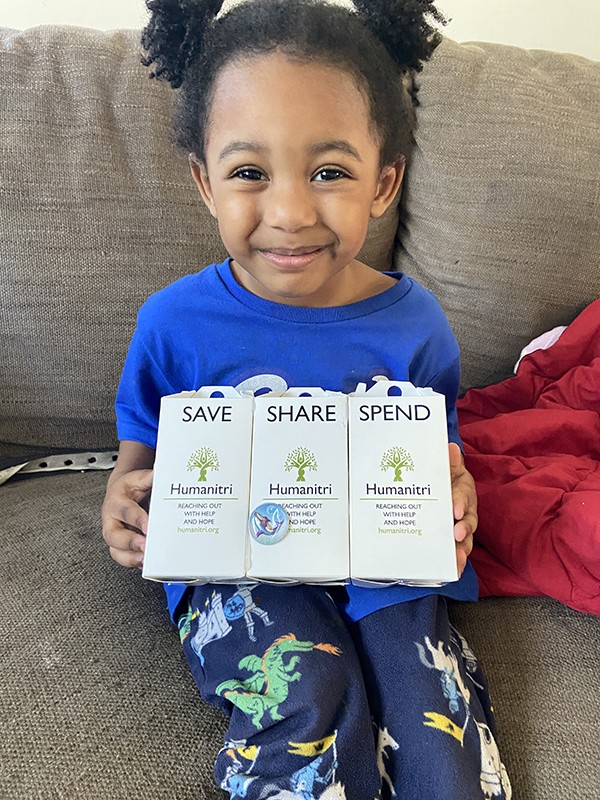
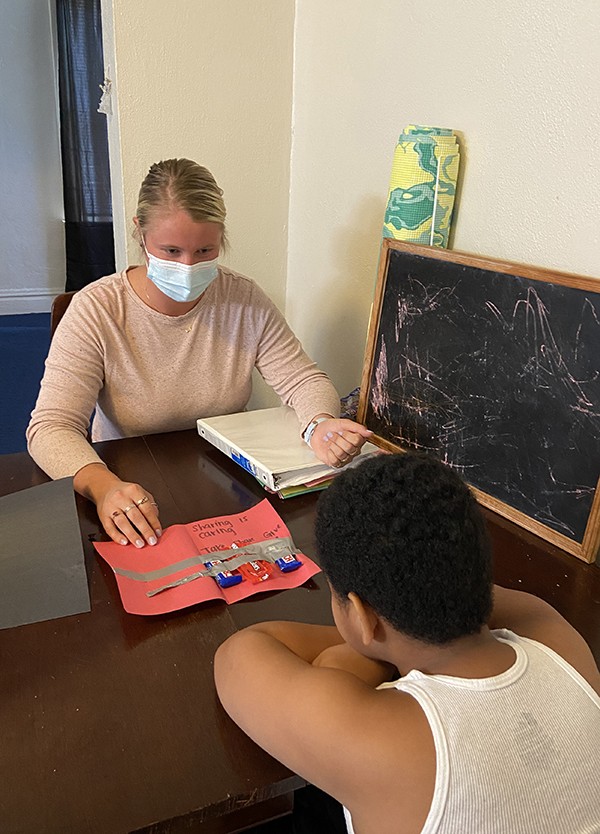 “We’ve long recognized the need for a structured program geared toward the children in our families, and it’s exciting to see it become a reality,” said Humanitri Interim Executive Director Lorri Holtgrieve. “The program is important because it shows these children that the cycle of poverty can be broken and there is more to life than mere survival.”
“We’ve long recognized the need for a structured program geared toward the children in our families, and it’s exciting to see it become a reality,” said Humanitri Interim Executive Director Lorri Holtgrieve. “The program is important because it shows these children that the cycle of poverty can be broken and there is more to life than mere survival.”
As the Maryville students concluded their work on the TAG program, the COVID-19 pandemic hit St. Louis full force. Health care facilities and other area agencies started limiting the number of volunteers and guests allowed. Stay-at-home orders were issued. Opportunities for occupational therapy fieldwork, a degree requirement for the Maryville students, quickly vanished.
After learning her initial fieldwork placement was canceled, Lori Dalton, ’17, ’20, worried she wouldn’t be able to graduate on time. So she took matters into her own hands to secure a new fieldwork placement. “We were literally finishing our TAG presentation on Zoom when I threw out, ‘Don’t you think Humanitri could use me right now?’” Dalton said. Associate Professor of Occupational Therapy Ashlyn Cunningham, OTD, OTR/L, ran with the idea and made it happen.” Cunningham was keenly aware of the pandemic’s impact on homeless families through her role as president of the Humanitri board of directors.
“Our families were missing a lot of connection and fellowship because the Humanitri staff was not medically trained and was unable to conduct home visits at the time,” Cunningham said. “But our Maryville occupational therapy students had that training and could start meeting with families face-to-face right away. It was a really proud moment.”
In the months following, Dalton traveled around St. Louis to meet with families. It became clear that families needed immediate help with distance learning and the technology it required. This included setting up internet access through Hotspots and navigating logging into virtual classrooms. She helped families create dedicated schoolwork spaces and organize calendars so they could remember what times virtual classes took place and when assignments were due.
“Some of the children were missing days and days of school because they didn’t know how to do virtual learning,” Dalton said. “And a lot of these children were already delayed. I knew I had to help them so they wouldn’t continue to fall further behind.” This meant providing services normally provided by school-based occupational therapists, like teaching children how to behave appropriately in class. Dalton spent many hours sitting with students during virtual classes, helping with homework and participating in Zoom meetings with teachers and educational specialists.
Other times, Dalton was able to facilitate more traditional occupational therapy practices with the parents and children. Her favorite activity was bringing poster board, magazines, glue sticks and scissors to create vision boards. “One little boy cut out a car and I asked him why. He said he wanted to buy his own car one day,” Dalton said. “I love that the vision boards help them think about the future and make goals for what they want in life.”
In the fall of 2020, Myranda Stewart, ’21, became the second Maryville student to complete her occupational therapy fieldwork with Humanitri. Stewart continued in-person home visits and spent her time focusing on holistic interventions to help parents and families achieve their goals.
“I like working with people to help them learn how to cope with their feelings and find effective ways to communicate,” she said. “A lot of parents in Humanitri have been diagnosed with depression or other mental health conditions. I taught them how to use strategies like journaling, meditation and deep breathing to help ground them. I spent time teaching children basic yoga poses to help them learn how to calm their bodies and get in the right mindset to kick off virtual school or to burn off energy during homework breaks.”
Stewart also brought expertise regarding feeding, safe sleep and developmental milestones from her experience in the neonatal intensive care unit. “I tried to instill confidence in the parents that they know what’s best for their children, while also sharing how they could keep their children safe,” Stewart said. “It was really cool to see those things click for the families, and for me to learn new ways to communicate and share ideas.”
Earlier this year, Stewart was hired by Humanitri to serve as their first-ever child and youth specialist-occupational therapist. Her new role brings the Maryville relationship full circle; among other duties, she is tasked with implementing the TAG program through in-person visits and independent learning via Google Classroom across expanded age groups.
“Humanitri benefited immensely from the Maryville partnership during a critical time in our history,” Holtgrieve said. “Watching these students bring help and hope to our families in the midst of a global pandemic was inspiring. The inclusion of occupational therapy into our program is one of the best things we could do for those we serve; it’s providing critical skills to underserved children and helping to level the playing field so they can look forward to a more equitable future.”


